Vladimir Putin looks like a blundering thug in the hollowed-out gangland to which he has reduced Russia. The Wagner Group mutiny has exposed his growing weakness https://t.co/PEg9J0bpCl pic.twitter.com/NMsHv0VgMC
— The Economist (@TheEconomist) June 29, 2023
In his important book “The Third Wave” Samuel Huntington pointed out that division among the ruling elite is a key sign of weakness in authoritarian regimes, notes Fareed Zakaria. When prominent members of the establishment break with the system, it often triggers a larger set of changes. Conversely, when you do not see such defection, it means the autocrat will probably be able to survive, he writes for The Washington Post:
For Putin, modernizing Russia would create a more active civil society, greater demands for better health care, more opportunities for ordinary citizens and a less kleptocratic state. And so he advocates a traditional Russia, which celebrates religion, traditional morality, xenophobia and strict gender conformity…..What does this all add up to? I am not sure. But it’s fair to say that Russia’s biggest problem is not that it is losing the Ukraine war but rather that it is losing the 21st century.
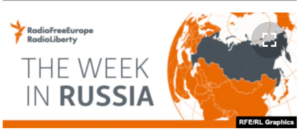 The fallout from Wagner mercenary force leader Yevgeny Prigozhin’s short-lived mutiny is far from over, but one effect seems all but certain: Putin has been weakened. Some say that Putin is “over” or “finished.” Others say the dramatic events of June 24 may mark “the beginning of the end” for the former KGB officer who has been president or prime minister of Russia for nearly 24 years, notes RFE/RL’s Steve Gutterman:
The fallout from Wagner mercenary force leader Yevgeny Prigozhin’s short-lived mutiny is far from over, but one effect seems all but certain: Putin has been weakened. Some say that Putin is “over” or “finished.” Others say the dramatic events of June 24 may mark “the beginning of the end” for the former KGB officer who has been president or prime minister of Russia for nearly 24 years, notes RFE/RL’s Steve Gutterman:
“Yesterday’s Putin is gone,” the headline on a June 27 guest essay in The New York Times by Andrei Kolesnikov appeared to hit the nail on the head, describing a palpable truth without predicting the future…. “This mutiny was so shocking that the regime appeared to many as near to collapse, which significantly undermines Putin’s ability to secure control in the eyes of the political class,” said Tatyana Stanovaya, head of the consultancy R.Politik.
“The instinct is to say Putin is weakened. Now that [the mutiny effort is] over, we still don’t know,” says Angela Stent, author of “Putin’s World” and National Intelligence Council officer for Russia and Eurasia from 2004-06.
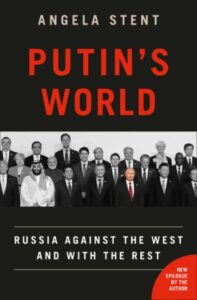
“Prigozhin is now putting himself forward as this very populist person, telling people the war was unnecessary, that their husbands and sons are fighting ill-prepared but children of the elites are sitting on beaches in the south of France, sunning themselves. If support for the war has existed until now, I don’t know how solid that is anymore,” Stent adds.
Putin is weakened, but there is nothing so dangerous as a lame tiger, adds Simon Sebag Montefiore, author of “Stalin: The Court of the Red Tsar.” The autocrat will unleash more repression; no doubt “traitors” within the military and security forces will be variously eliminated. And yet, for all the excitable portrayals of Putin as a new Stalin, he actually lacks the authority or the will or indeed the maximalist Marxist-Leninist ideology to launch or manage mass killings anywhere near the vast scale of the Stalinist Terror, he writes for Vanity Fair.
The crisis has given a “huge jolt” to the system, said Stephen Sestanovich, senior fellow for Russian and Eurasian studies at the Council on Foreign Relations. But it’s probably a mistake to exaggerate the divisions within the national security establishment, he told an Atlantic Council forum (below) on “How Should the U.S. Reshape its Russia Policy?”
“On balance, Putin is much weaker today than he was just four or five days ago,” said Michael McFaul, a former U.S. ambassador to Russia. “Elites in Russia, soldiers in Russia, are all watching this and wondering, ‘What’s happened to our leader?’ And I think that’s good, because a weakened Russia might do less in terms of damage, principally in Ukraine,” he told VOA’s Russian Service.
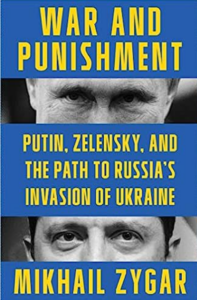
Optimists will take Mr Putin’s weakness as proof that his rule is doomed. If only that were so. The reality is that despots, even weak ones, can survive for a long time if no obvious alternative is available, and if they still have plenty of guns on their side and the ruthlessness to use them. Look at Alexander Lukashenko in next-door Belarus, or Bashar al-Assad in Syria, The Economist reports. However, two extra factors are working against Mr Putin, it adds:
- The first is the war itself. Ukraine’s counter-offensive continues to make steady progress….. Every piece of bad news for Russia from the front adds to the pressure on Mr Putin. That is why the counter-offensive is so critical, and why the evidence of division in the Russian ranks is so welcome.
- Mr Putin’s second problem is the economy…… The gap between government spending (including the huge costs of the war) and receipts is widening, forcing Russia to raid its sovereign-wealth fund. The rouble has lost almost 40% of its value in the past year. China has bought Russian oil—at a discount—but it has not yet supplied large amounts of weapons.
For many members of the ruling elite, it is now clear that Mr. Putin has ceased to be the guarantor of stability he was for so long, adds Mikhail Zygar (@zygaro), the former editor in chief of the independent TV news channel Dozhd and the author of “War and Punishment: Putin, Zelensky and the Path to Russia’s Invasion of Ukraine” and “All the Kremlin’s Men: Inside the Court of Vladimir Putin.” A new situation is quickly emerging and what happens next is impossible to know. But it would be prudent, and not just for Russians, to start preparing for what will come after him, he writes for The New York Times.
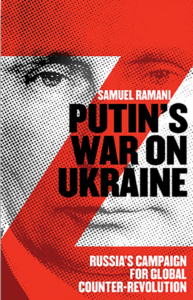 At the moment, the lack of a clear successor, or the possibility of a violent warlord such as Prigozhin taking charge, leaves too many uncomfortable variables to openly root for a Putin overthrow, according to two current U.S. officials, two foreign officials and one former U.S. official, POLITICO adds.
At the moment, the lack of a clear successor, or the possibility of a violent warlord such as Prigozhin taking charge, leaves too many uncomfortable variables to openly root for a Putin overthrow, according to two current U.S. officials, two foreign officials and one former U.S. official, POLITICO adds.
“The United States has no interest in instability inside Russia that has the potential to spill over into Europe,” said Andrea Kendall-Taylor, a former U.S. intelligence official who specializes in Russia and autocracies. “Regime change that occurs through a chaotic and violent process is also the most likely to produce another authoritarian leader, which could possibly be worse than Putin.”
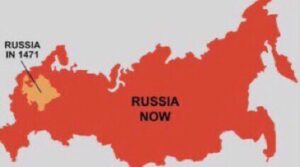
Meaningful domestic political change in Russia will necessarily come from within, requiring modesty about the influence of international actors, said Dylan Myles-Primakoff, senior program manager at the National Endowment for Democracy (NED). Any future reformer would likely emerge as a “systemic liberal” in the mold of Moscow mayor Sergey Sobyanin or Prime Minister Mikhail Mishustin, he told the Atlantic Council (below).
In noting the lack of a more forceful military response to the mutiny, some have cited the chaotic and uncertain situation and the Kremlin’s doubts about using force in populated areas, AP reports.
Mark Galeotti, a London-based expert on Russian security affairs, said the government system is “hierarchical and slow,” and doesn’t encourage initiative. “In that context, people would just not be willing to act without direct orders, either because they just feared being hanged out to dry if they guessed wrong or else because actually, they had a certain sympathy for Prigozhin,” he added.
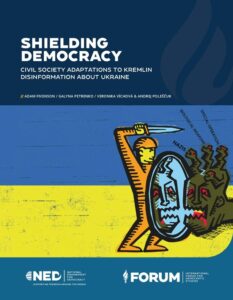 Ukraine benefits from this crisis in two ways, argues Alexey Yusupov, a policy officer in the Eastern Europe Department of the Friedrich-Ebert-Stiftung (FES):
Ukraine benefits from this crisis in two ways, argues Alexey Yusupov, a policy officer in the Eastern Europe Department of the Friedrich-Ebert-Stiftung (FES):
- The Kremlin seems to have plans to upgrade the, so far, police-repressive National Guard, led by General Solotov, a former bodyguard of Putin, to a full-fledged internal force modelled on the Soviet People’s Commissariat for Internal Affairs, NKVD, by arming it with heavy equipment. Given the current supply situation, this equipment can only be taken from the stocks of the army fighting in Ukraine.
- Much more important is the impact of the domestic crisis on the Russian grand strategy in the war against Ukraine and the conflict against the West. This was ultimately based on the principle of ‘time works for us’. A prolonged confrontation has been chosen to undermine Ukrainian, European and American stamina and solidarity; Moscow has assumed that it is in the driver’s seat and that, sooner or later, it will be victorious simply by maintaining the current level of confrontation. The basic assumptions of this strategy have now been shaken.







